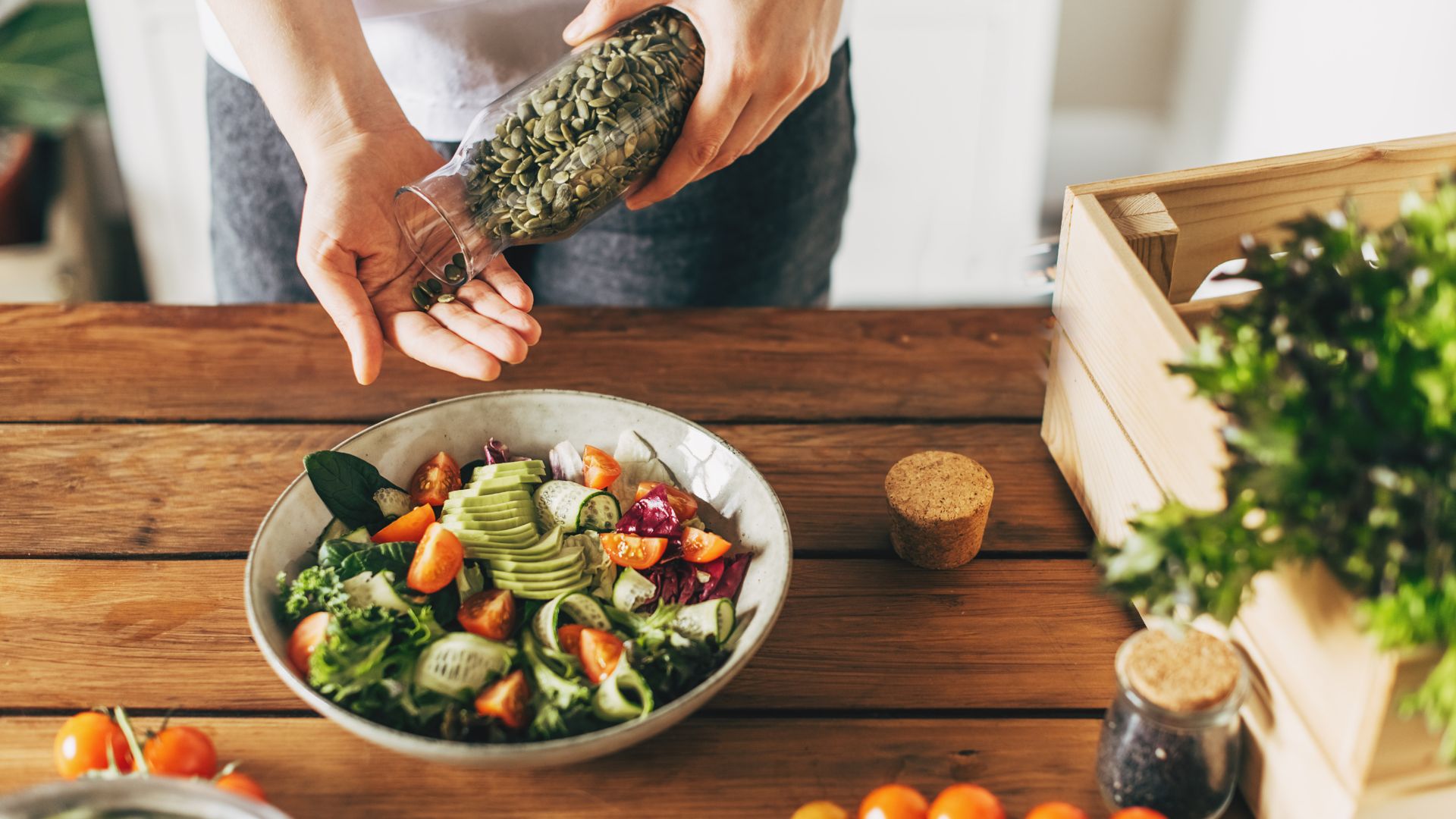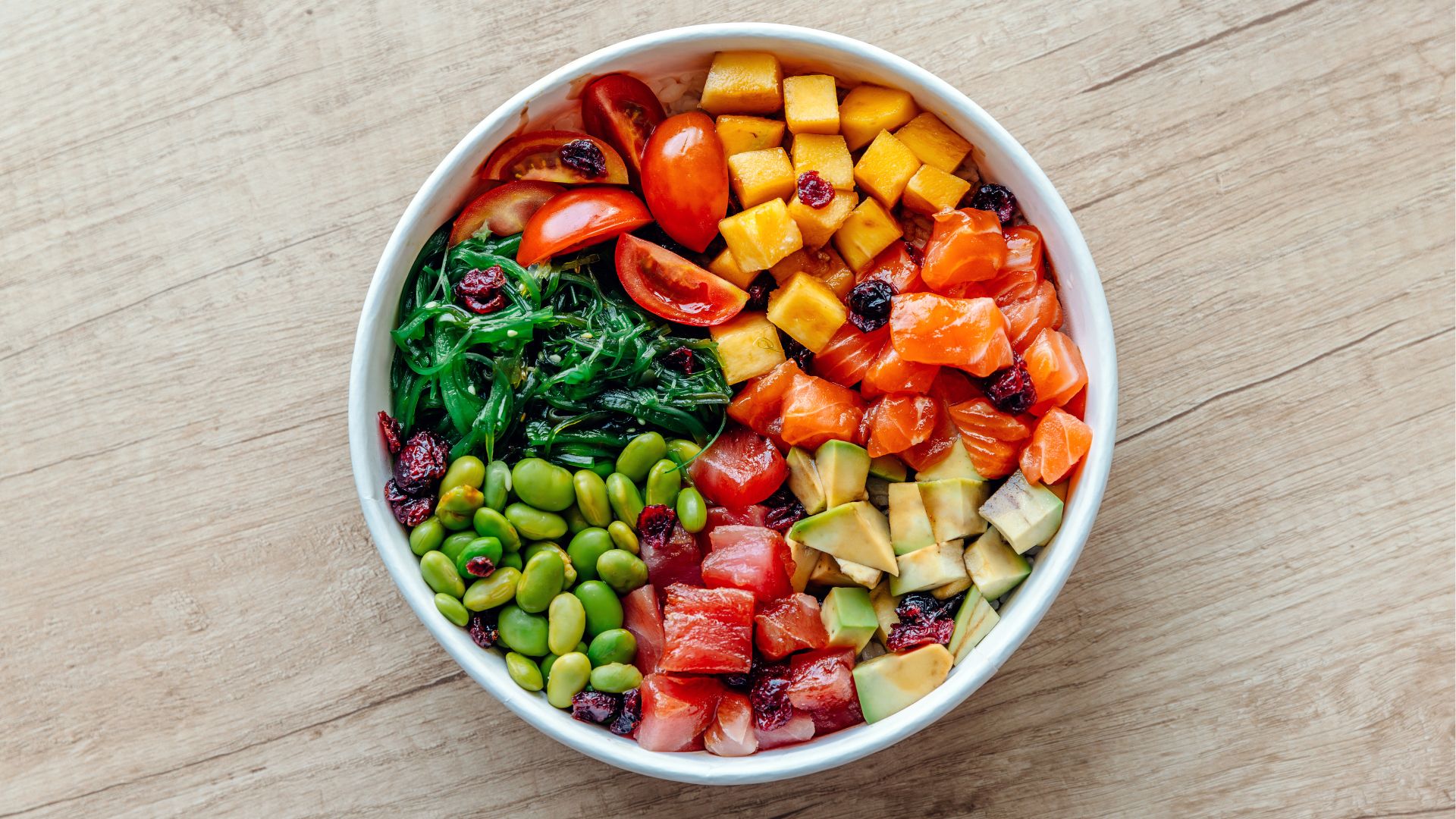Forget 5-a-day - this is the number of plant-based foods you need for a healthy diet, new study reveals
Scientists have been rethinking health targets like steps, sleep, and now, the age-old 5-a-day recommendation for fruit and vegetables

Grace Walsh

Sign up to our free daily email for the latest royal and entertainment news, interesting opinion, expert advice on styling and beauty trends, and no-nonsense guides to the health and wellness questions you want answered.
You are now subscribed
Your newsletter sign-up was successful
Want to add more newsletters?

Daily (Mon-Sun)
woman&home Daily
Get all the latest beauty, fashion, home, health and wellbeing advice and trends, plus all the latest celebrity news and more.

Monthly
woman&home Royal Report
Get all the latest news from the Palace, including in-depth analysis, the best in royal fashion, and upcoming events from our royal experts.

Monthly
woman&home Book Club
Foster your love of reading with our all-new online book club, filled with editor picks, author insights and much more.

Monthly
woman&home Cosmic Report
Astrologer Kirsty Gallagher explores key astrological transits and themes, meditations, practices and crystals to help navigate the weeks ahead.
The 5-a-day slogan was invented in the late 1980s in America, before finding its way to the UK in the early 2000s. It was based on the idea that we need 400g of fruit and vegetables every day to reduce the risk of cancer, heart disease, stroke, and other diseases.
While it still rings true that getting enough fruit and vegetables in our diets is important, the thinking has changed - just like how we don't all need to do 10,000 steps every day or get eight hours of sleep.
It's now about plant diversity. Rather than ticking off a list of fruit and vegetables, scientists are urging people to look at their entire diet.
Should I still eat 5-a-day?
Researchers have landed on the ideal number of plant-based foods that we should all be aiming to eat every day to stay healthy, and while it’s a lot higher than five-a-day, you’ll be pleased to hear that it’s something we can all manage.
As it turns out, only a few of us (17%) in the UK were managing to reach the 5-a-day recommendation anyway, showing that there's much room for improvement.
A team from Kings College London analysed data from almost 700 adults after they completed a 4-day food diary for the 2016-17 National Diet and Nutrition Survey. They found that eating 11 plant-based foods, rather than strictly fruit and vegetables, proved to be better for our overall health. These plant-based foods included herbs, legumes, and pulses, among others.
The survey respondents were split into three groups based on how many plant-based foods they ate every day.
Sign up to our free daily email for the latest royal and entertainment news, interesting opinion, expert advice on styling and beauty trends, and no-nonsense guides to the health and wellness questions you want answered.
Dr Eirini Dimidi and her team found that people who ate the smallest variety of plants, around 5.5 per day, were more at risk of a heart attack or stroke as their bodies were lacking HDL cholesterol, or ‘good cholesterol’. This is found in foods like nuts, seeds, avocado and fruit and vegetables, and other key nutrients.

Plant-based sources of healthy fat can also include foods like avocado and edamame beans.
The experts say the median number of plants people were eating each day was eight, but some respondents ate as few as two. Vegetables were the largest contributors (21%) to diversity, followed by plant-based fats and oils (18.8%), and then fruit (17%).
The researchers found that people who eat a wide variety of plant-based foods tend to live a healthier lifestyle generally. Only 6% of people in the high-diversity group smoked, compared with 30% in the low-diversity group.
However, physical activity wasn’t taken into consideration when looking at the health outcomes for each of the three groups.
The study, published in Clinical Nutrition, also says that even people with the most diverse diets were still lacking some key micronutrients and were not meeting the daily recommendation of 30g of fibre a day. The British Nutrition Foundation suggests eating 30 plant-based foods per week to reach your fibre target and improve gut health and general health.
How to add more variety to your diet
Dr Dimidi says: “Current dietary guidance in the UK often emphasises quantity, such as ‘five-a-day’ for fruit and vegetables. Our findings suggest that dietary variety, across all plant-based food groups, may be just as important for improving diet quality and lowering the risk of cardiometabolic diseases.”
Here's how you can add more variety to your diet:
- Sprinkle nuts and seeds on your meals: One way to add more plant-based fats and oils to your diet is by spicing up your salads and porridge with nuts and seeds, which contain omega-3 fatty acids.
- Add a salad: There's nothing wrong with having a carbohydrate-heavy meal - in fact, it can do wonders for your energy levels and help you sleep better. But adding a simple mixed salad on the side will boost your plant-based food intake.
- Incorporate more gut-healthy foods: These include staples like kimchi and sauerkraut, and bases like lentils and other pulses. They can be added as a side to meals or used as an alternative to rice very easily.
- Think outside the box: "In addition to fruits and vegetables, legumes, nuts, seeds, herbs and spices are great plant-based food sources that can help us to introduce more plant diversity into our diets," says Dr Dimidi. "Branch out from the usual peas, onions or carrots with dinner, and try incorporating seasonal vegetables into your dinners, like courgettes, broccoli and broad beans."
- Challenge yourself: As noted, vegetables are still top of the food chain when it comes to plant variety. Try playing roulette in a supermarket - choose a vegetable at random and see what you can make with it.
Other benefits of plant variety
The benefits of limiting meat and other animal-based products have been well documented. In the UK, daily consumption of plant-based alternative foods has increased from 7% in 2008 to 13% in 2019, according to a study linked to the University of Oxford. This will also be in line with the increased variety of plant-based foods in our supermarkets, such as milks and meat-alternative products.
Whether we’re choosing to eat more plants for health or ethical reasons, we now know that they can be rich sources of nutrients, dietary fibre and phytochemicals which can strengthen our immune systems. Eating a diverse and varied diet, rich in plants, can also improve blood glucose levels, which may also prevent other problems such as obesity or diabetes.
Foods rich in protein and vitamin K are also important for women as our oestrogen levels drop during perimenopause. This can help protect muscle and bone mass with regular exercise and strength training.
It’s also important to eat a diet low in ultra-processed foods (UPFs) and high in calcium and vitamin C to protect our bones and immune systems.
Alongside the 10,000-step recommendation, which was created by a Japanese company selling pedometers, the five-a-day recommendation has its limitations. When it comes to diet and exercise, there’s no one-size-fits-all approach, and our age, lifestyles and genes all need to be taken into consideration too.

Kat Storr has been a digital journalist for over 15 years after starting her career at Sky News, where she covered everything from world events to royal babies and celebrity deaths. After going freelance eight years ago, she now focuses on women's health and fitness content, writing across a range of UK publications.
From perimenopause to the latest fitness trends, Kat loves researching and writing about it all. She's happy to give any fitness challenge a go and speaks to experts about wellbeing issues affecting people every day.
- Grace WalshHealth Channel Editor
You must confirm your public display name before commenting
Please logout and then login again, you will then be prompted to enter your display name.